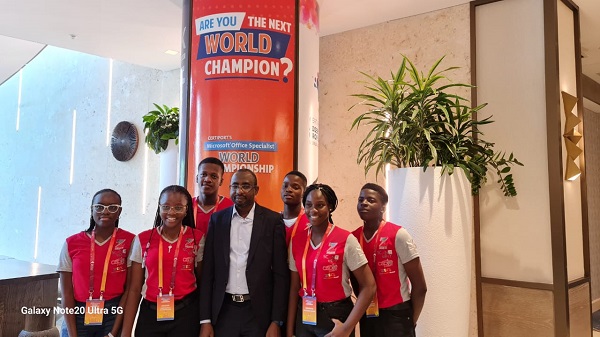
The National Information Technology Development Agency (NITDA) said it has achieved a significant milestone by equipping more than 3 million Nigerians with essential digital literacy skills.
This was revealed by the agency’s director-general, Mallam Kashifu Abdullahi, who said the endeavour is part of NITDA’s larger goal of facilitating a 95 per cent digitally literate population in Nigeria by 2030.
Speaking at the council on Global Partner Summit held in Orlando, Florida, Abdullahi highlighted Nigeria’s growing digital economy and the nation’s vision for enhancing digital literacy among its citizens. He emphasised that NITDA’s efforts have led to the empowerment of 3.3 million Nigerians through diverse capacity-building initiatives, including programs like the Stem Bootcamp for Kids, digital skills training for students, public servants, journalists, and specialised training in digital marketing, artificial intelligence (AI), programming and digital entrepreneurship.
Abdullahi expressed Nigeria’s commitment to extensive digital literacy training for its youth, aiming to position the country as a global information technology hub capable of addressing the worldwide digital skills shortage. He underlined that NITDA is dedicated to formulating policies, regulations, and initiatives that foster deepened digital literacy and skills across the nation.
In a bid to further strengthen digital literacy, Abdullahi suggested incorporating mobile information literacy into upcoming versions of Certiport’s IC3 global digital literacy standard. This addition would cater to the millions of Nigerians and Africans who rely on mobile phones as their primary means of accessing and participating in the digital economy.
The event also saw the participation of six Nigerian students in the Microsoft Office Specialist World Championship (MOSWC). The students, selected through the Nigerian National Championship organised by ReadManna Empowerment Initiative (REI), showcased Nigeria’s prowess in digital literacy and skills on the global stage.
Abdullahi praised the Nigerian representatives for their achievements, asserting that they have elevated Nigeria’s global standing in digital literacy. He hailed their performance as a testament to Nigeria’s abundant human capital potential and its position as a front-runner in the race for digital advancement.
In recognition of the ReadManna Empowerment Initiative’s contributions to promoting ICT education in Nigeria, Inuwa commended the organisation and expressed NITDA’s willingness to collaborate with similar entities to further enhance digital literacy and skills across the country.
Founder of ReadManna Empowerment Initiative, Edna Agusto highlighted the inclusivity of the MOSWC, open to students aged between 13 and 22 enrolled in academic institutions. Agusto expressed confidence in Nigeria’s potential to excel in the global digital arena with sustained talent development, government support, and the commitment of key stakeholders.
In his address, Abdullahi took the opportunity to introduce Nigeria’s recently launched National Digital Literacy Framework to global experts. The summit facilitated the exchange of valuable insights, allowing Nigeria to learn from other countries’ experiences and garner support in its quest to achieve 95 per cent digital literacy by 2030.


